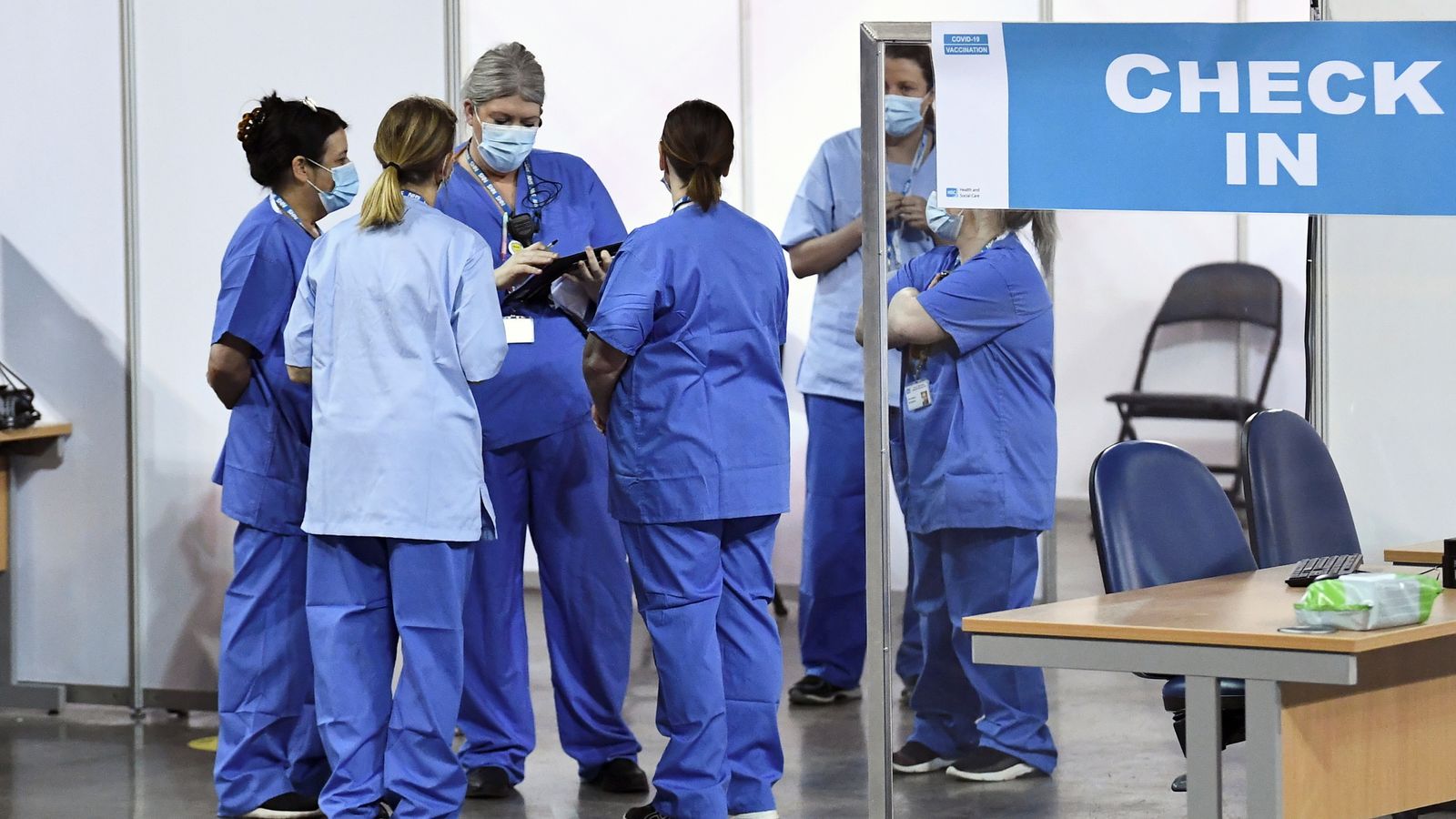The number of people testing positive for COVID in the UK has risen 29% to almost 3.5 million, latest figures show.
In England, an estimated 2,873,600 people had coronavirus in the week to 6 July, according to the Office for National Statistics (ONS).
There were 334,000 cases in Scotland, 183,500 in Wales, and 107,600 in Northern Ireland.
The total is the largest since mid-April and 29% higher than last week’s 2.7 million, but remains well below the UK’s record high of 4.9 million reported at the end of March.
Revealed: Most common signs you have a COVID infection
According to the ONS, the estimated percentage of the community population – that is people not in hospitals, care homes or other institutional settings – who had COVID in the latest week was 5.27% in England, or one in 19 people.
The figure was 6.04% in Wales, one in 17 people, 5.86% in Northern Ireland, also one in 17 people, and 6.34% in Scotland, or one in 16 people.
COVID-19: Sore throat now the most common coronavirus symptom, data suggests
Summer COVID spike is less severe – but relentless pressure on emergency departments is taking its toll
COVID: Women twice as likely as men to be extremely worried about their lives post-pandemic, study suggests
“Infections increased in all English regions and age groups,” the ONS added.
The figures are taken from PCR tests using nose and throat swabs.
Although this spike in cases has been less severe than those seen previously, the relentless pressure is taking its toll on emergency departments.
Every patient in hospital with the virus means another bed is taken up, meaning longer waits for other patients.
Read more:
Analysis: Govt may need to rethink strategy on living with COVID if summer surge continues
Dr Mohammed Munavvar told Sky News that his hospital’s work to tackle NHS waiting lists had been making a dent, but now that has been disrupted.
He said: “Other patients cannot be admitted and treated, and patients have been waiting for a long time already for their procedures and their treatment is once again getting delayed.
“That is putting a lot of pressure on the system and on the restorative work, which had started very well.”









